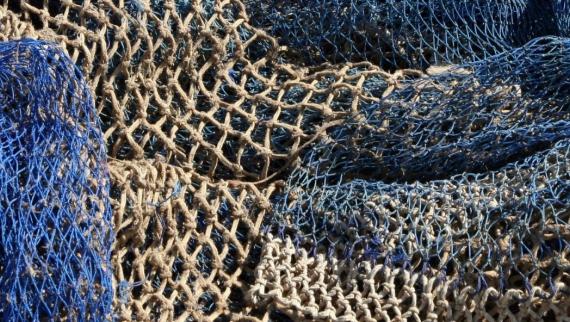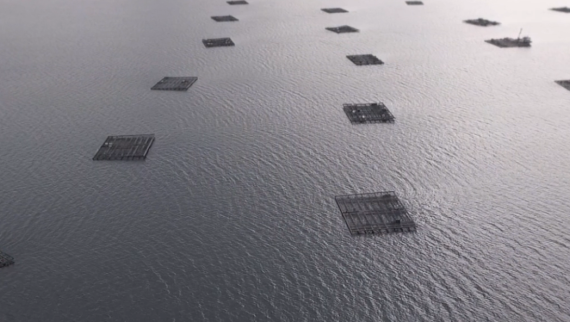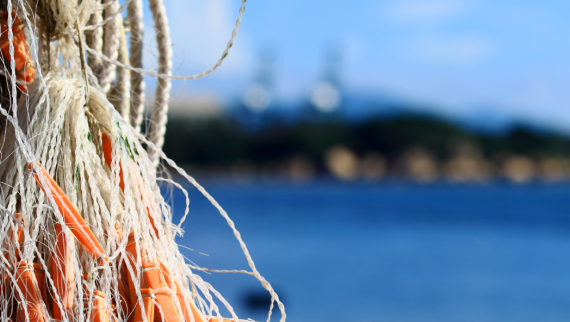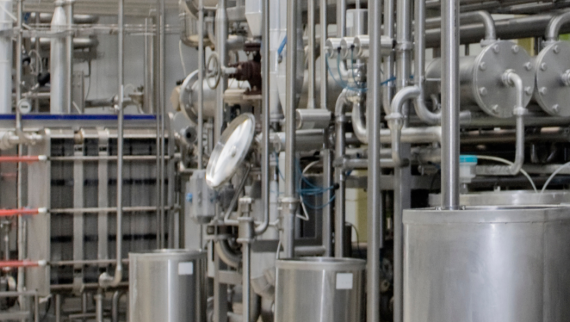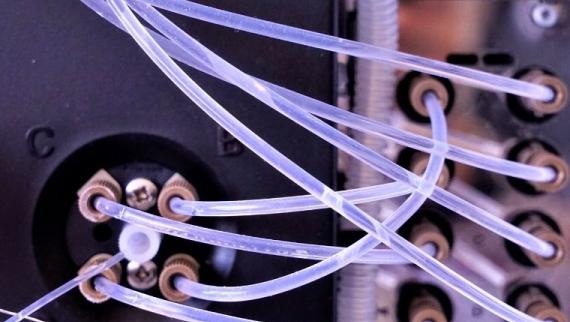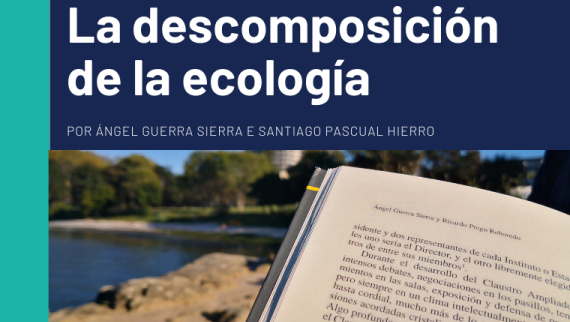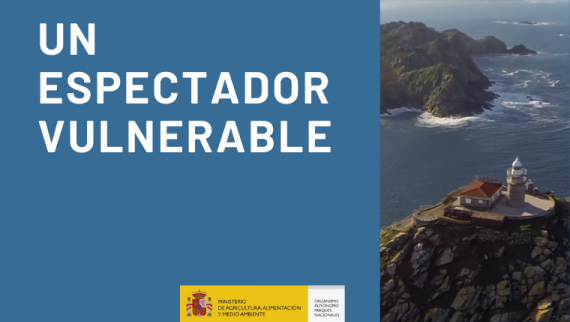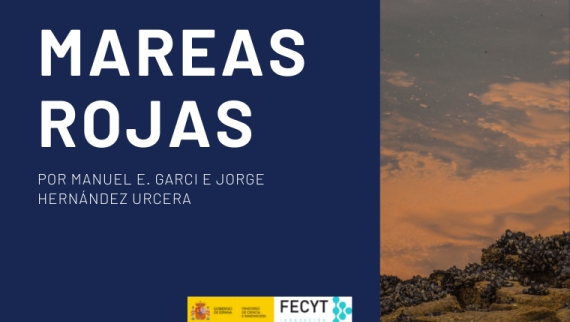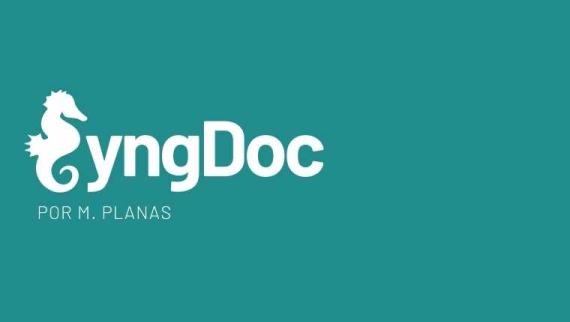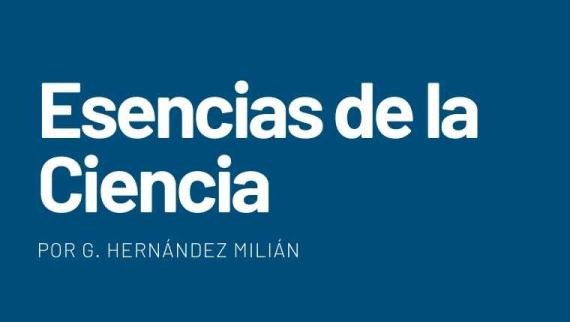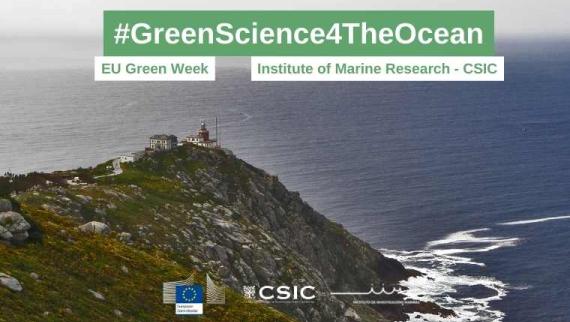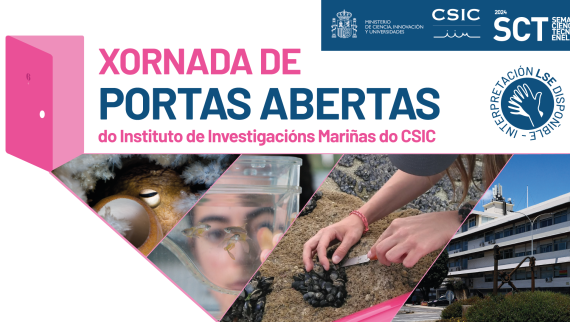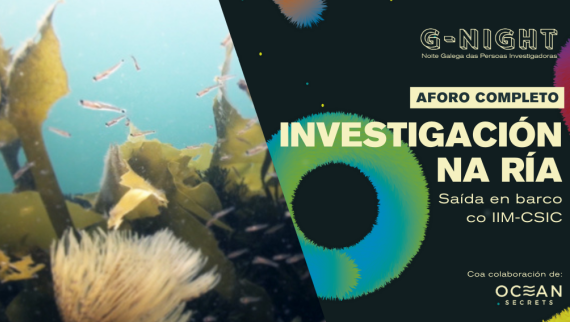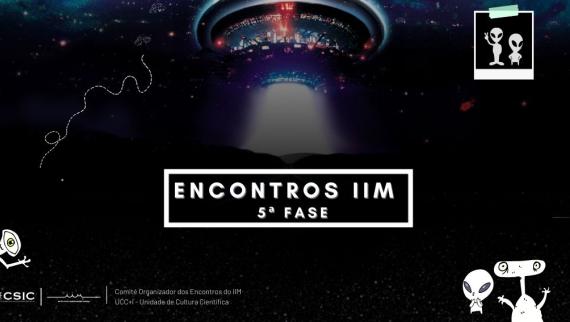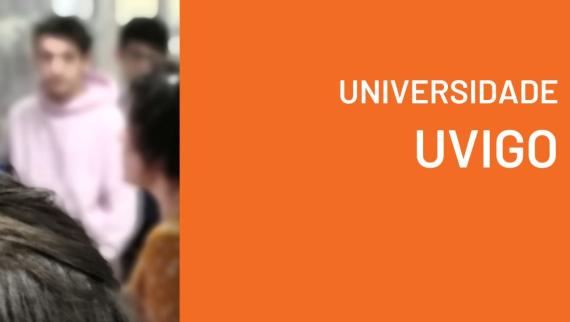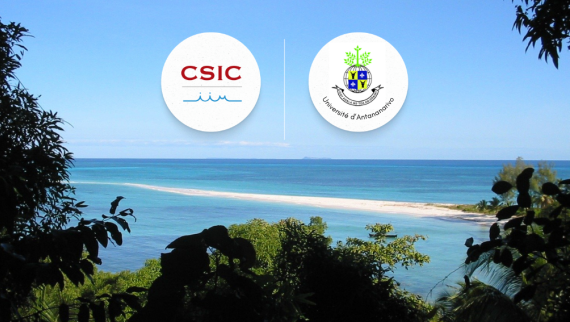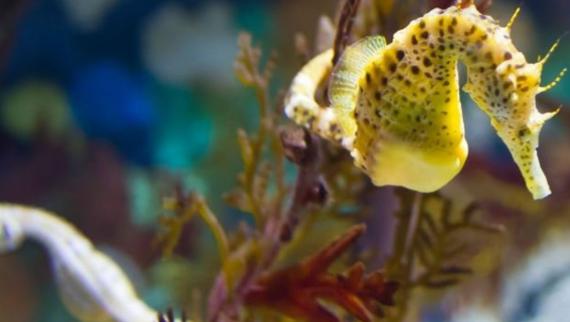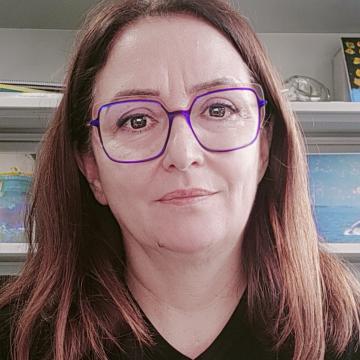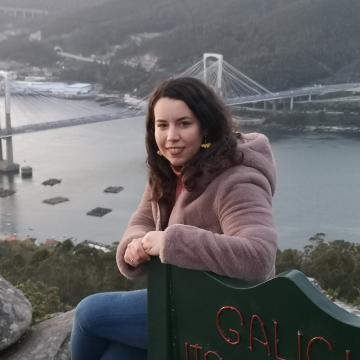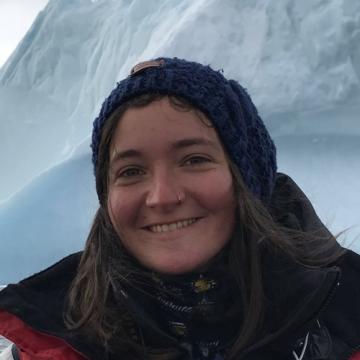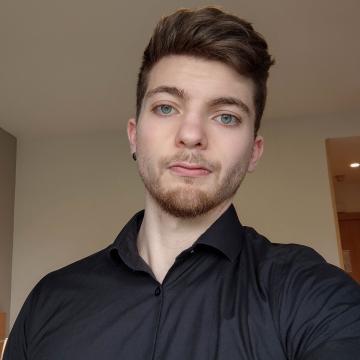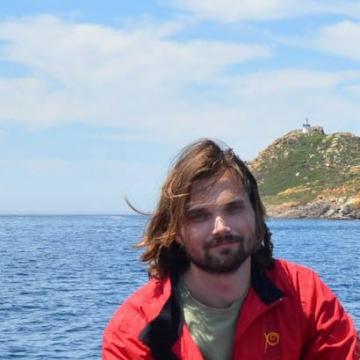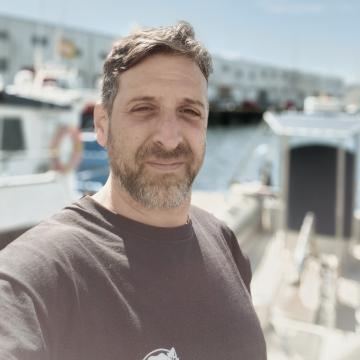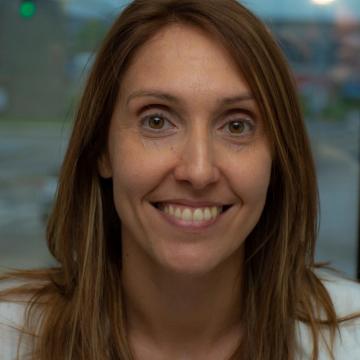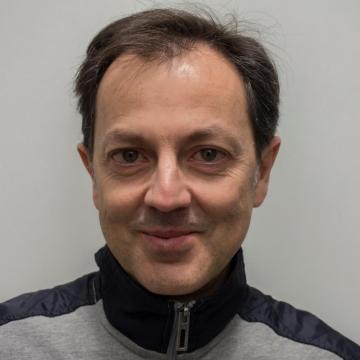Marine Ecology & Resources
All living beings, including those living underwater, have an intricate relationship with their environment and with other living beings around them. Unveiling this complex network is essential to progress towards a sustainable society.
By studying the complex relations among all nodes in the ecosystem, the Marine Ecology & Resources research group, also known as ‘ERM’, aims to develop a holistic approach to marine ecological studies.
Its philosophy is as follows: if we know how all the pieces of the ecosystem work together in nature and how they interact with society, we’ll find ways to better manage and protect the resources and services we can benefit from, leaving those that can’t be exploited where they belong.
Knowing and conserving marine biodiversity is the first step in this process. In addition to general marine biodiversity conservation, ERM has an interest in marine holobionts, inextricably linked species whose study, using an interactomics/diseasomics approach, can lead to more secure and safe marine resources.
Following a transversal ecosystem approach, the group can better understand and predict the evolution and improve prospects for key fish populations and aquaculture exploitations. By studying how animals behave, eat and relate to each other and to their natural environment allows for a better understanding on how to treat them both, in-water and in captivity. For instance, the study of cephallopods and the relationship of their larvae with oceanographic currents has allowed the groups to create important industrial collaborations, implementing measures for a better management of these iconic Galician fisheries and opening the door to octopus aquaculture exploitation. In addition, the group studies fish population dynamics, reproductive success and relations with other links in the trophic chain, such as the emblematic marine mammals. They do so both in deep sea industrial fishing areas like the Flemish Cap (since 1988) and in important coastal fisheries with usually poorly studied populations that are key for the local economy.The deep knowledge acquired from the study of ecology allows even for an improvement in human health and food security. Parasites, such as Anisakis spp., also have their own diversity and ecological cycles, their own way of interacting with the environment. The group has been studying the different species for over 2 decades, creating one of the first Anisakis Biobank Units, setting the bases for future comparative studies and an improved consumer health. Focusing on aquaculture, a traditional and essential sector in Galicia, the group takes multiple approaches from an ecological perspective.
ERM focuses on the ecological factors that play a role within aquaculture facilities, both in land-based and submerged systems. It also works on an innovative approach to aquaculture in Europe known as Integrated MultiTrophic Aquaculture (IMTA), where several species are grown together in the same culture. This allows the culture to take advantage of the trophic chain that links the community together, creating better and more sustainable conditions.
In addition, the ERM combines fisheries and oceanographic surveys with high-resolution and high-throughput analytic technologies with the potential to enable new methods and technologies for the management of so-called ecosystem services, which are the benefits that ocean ecosystems provide us with. These obviously include fish, seafood and minerals, but also tourism, culture and mental wellbeing.
The group recently kick-started a new line focused on the economic valuation of these services, that is, understanding and quantifying their environmental, economic, sociological and cultural value. This enables better managing and conservation capabilities, as well as improved, more democratic governability.
It’s not only the ecosystem that is important, but also the socioecological system: the deep and inevitable connections it has with society.
- CONECTEE -
<p>Conectividad Ecológica y el papel del Parque Nacional Islas Atlánticas de Galicia en la conservación de Elasmobranquios costeros</p>
Principal investigator:AlonsoFernándezAlexandreFunding body:Red de Parques Nacionales - MINISTERIO PARA LA TRANSICIÓN ECOLÓGICA Y EL RETO DEMOGRÁFICOFunding for IIM-CSIC:155137€Go to project pageFromto - MOVE -
<p>Movescapes, connectivity hotspots and eco-evolutionary dynamics: protecting the
functional role of predatory coastal fishes</p>Principal investigator:AlonsoFernándezAlexandreFunding body:Agencia Estatal de Investigación (AEI - Biodiversa+). Proyectos de colaboración Internacional 2022-2. Programa Estatal para Afrontar las Prioridades de Nuestro Entorno. Plan Estatal de Investigación Científica y Técnica y de Innovación 2021-2023.Funding for IIM-CSIC:173700€Go to project pageFromto - IMPRO -
<p>Programa Ciencias Mariñas: Integración da microscopia con novos procedementos de análise de plancto microbiano</p>
Principal investigator:GomesTeixeiraIsabel CristinaFunding body:El Programa de Ciencias Mariñas de Galicia es 1 de los 5 programas de Ciencias Marinas de los Planes Complementarios de I+D+I con las CCAA del Plan de Recuperación Transformación y Resilencia (NextGenerationEU).Funding for IIM-CSIC:75900€Go to project pageFromto - MOLECOL -
<p>Programa Ciencias Mariñas: Ecoloxía Molecular de moluscos bivalvos</p>
Principal investigator:AbolloRodríguezElviraFunding body:El Programa de Ciencias Mariñas de Galicia es 1 de los 5 programas de Ciencias Marinas de los Planes Complementarios de I+D+I del Plan de Recuperación Transformación y Resilencia. Financiado por FEMP/FEMPA.Funding for IIM-CSIC:137994€Go to project pageFromto - S3FISH -
<p>Programa Ciencias Mariñas: Vixilancia do benestar dos peixes de cultivo</p>
Principal investigator:RotllantMoragasJosepFunding body:El Programa de Ciencias Mariñas de Galicia es 1 de los 5 programas de Ciencias Marinas de los Planes Complementarios de I+D+I del Plan de Recuperación Transformación y Resilencia. Financiado por FEMP/FEMPA.Funding for IIM-CSIC:113500€Go to project pageFromto
- Hernández-Urcera, J.; Carneiro, M.D.D.; Planas, M. (2022) Turnover Rates and Diet–Tissue Discrimination Factors of Nitrogen and Carbon Stable Isotopes in Seahorse Hippocampus reidi Juveniles Following a Laboratory Diet Shift Animals DOI:10.3390/ani12101232
- Mucientes, G.; Vedor, M.; Sims, D.W.; Queiroz, N. (2022) Unreported discards of internationally protected pelagic sharks in a global fishing hotspot are potentially large Biological Conservation DOI:10.1016/j.biocon.2022.109534
- Planas, M. (2022) Ecological Traits and Trophic Plasticity in The Greater Pipefish Syngnathus acus in the NW Iberian Peninsula Biology DOI:10.3390/biology11050712
- Knutsen, J.A.; Kleiven, A.R.; Olsen, E.M.; Knutsen, H.; Espeland, S.H.; Sørdalen, T.K.; Thorbjørnsen, S.H.; Hutchings, J.A.; Fernández-Chacón, A.; Huserbråten, M.; Villegas-Ríos, D.; Halvorsen, K.T.; Nillos Kleiven, P.J.; Langeland, T.K.; Moland, E. (2022) Lobster reserves as a management tool in coastal waters: Two decades of experience in Norway Marine Policy DOI:10.1016/j.marpol.2021.104908
- Villegas-Ríos, D.; Jacoby, D.M.P.; Mourier, J. (2022) Social networks and the conservation of fish Communications Biology DOI:10.1038/s42003-022-03138-w
- PhD - Elsa Carmen García Mayoral (23/09/2022) Ecology of loliginid squid in a coastal upwelling Universidade de Vigo (UVIGO)
- PhD - Mario Davi Dias Carneiro (11/02/2022) Influência do pH na produção do peixe-palhaço (Amphiprion percula) e do cavalo-marinho (Hippocampus reidi) em sistemas de recirculação com baixa salinidade Universidade Federal de Rio Grande do Norte (UFRN)
- PhD - Cristina García Fernández (21/12/2021) Ecology of recruitment in European hake: interaction between maternal effects, environment and fisheries Universidad de Vigo (UVigo)
- TFM - Abdelhakim Belaidi (30/09/2021) Análisis de la interacción entre los parámetros de la historia vital de S. mentella, medio ambiente y pesquerías en el área de Flemish Cap. UNIVERSIDAD DE ALICANTE
- PhD - María Helena Rodríguez Domínguez (18/06/2021) Biobancarización de parásitos zoonóticos en sistemas productivos de pesca y acuicultura, y su aplicación en la categorización de riesgos Univerdidad de Vigo (UVigo)
<p>Investigación sobre párasitos del pescado, principalmente anisakis y otros.</p>
Principal investigator:GonzálezGonzálezÁngel FranciscoFunding body:MERCADONA SAFunding for IIM-CSIC:33221€Go to project pageFromto- ANIBLOCK_ANICHAIN -
<p>Investigación sobre párasitos del pescado, principalmente anisakis y otros.</p>
Principal investigator:GonzálezGonzálezÁngel FranciscoFunding body:MERCADONA SAFunding for IIM-CSIC:41013€Go to project pageFromto - ARMAS -
<p>Estudio, diseño e implementación de estrategias de Análisis de riesgos para fortalecer las seguridad, calidad y calidez del Rape y la Merluza del Atlántico Sudeste frente a parásitos zoonóticos</p>
Principal investigator:GonzálezGonzálezÁngel FranciscoFunding body:Mascato SAFunding for IIM-CSIC:88417€Go to project pageFromto - OCTOBLUE -
<p>Desarrollo de investigación sobre el cultivo del pulpo común Octopus vulgaris</p>
Principal investigator:GonzálezGonzálezÁngel FranciscoFunding body:ARMADORA PEREIRAFunding for IIM-CSIC:75000€Go to project pageFromto - FishGenome -
<p>Improving Cost-Efficiency of Fisheries Research Surveys and Fish Stocks Assessments using Next-Generation Genetic Sequencing Methods</p>
Principal investigator:SaboridoReyFranFunding body:European CommisionFunding for IIM-CSIC:800000€Go to project pageFromto
- Capabilities | Assessment of the survival of fisheries by-catch and fish spatial ecology using biotelemetry techniques
Use of acoustic tags and biotelemetry techniques to monitor fish behavior and assess the survival of fisheries by-catch.
- Capabilities | New technologies for rapid detection of pathogens in fishery and aquaculture products
Development of mass spectroscopy techniques for rapid identification and quantification of parasites in seafood products, as well as proteomic techniques to identify pathogenic microorganisms, fish parasites and allergen proteins.
- Capacidades | Desenvolvemento de sistemas de acuicultura multitrófica integrada
Optimización de sistemas de cultivo multitrófico en infraestruturas de acuicultura abertas e pechadas, dende os sistemas de recirculación en acuicultura de peixes e macroalgas, con especial interese no efecto dos microbiomas resultantes sobre o benestar animal, ata o axuste de sistemas de acuicultura de múltiples especies de baixo nivel trófico no océano.
- Capacidades | Evaluación de la supervivencia de las capturas incidentales pesqueras y ecología espacial de especies de peces mediante técnicas de telemetría
Uso de marcado acústico y de técnicas de biotelemetría para monitorizar el comportamiento de los peces y evaluar la supervivencia de las capturas incidentales de la pesca.
- Capacidades | Nuevas tecnologías para la detección rápida de patógenos en productos de la pesca y la acuicultura
Desarrollo de técnicas de espectroscopía de masas para la identificación y cuantificación rápida de parásitos en productos del mar, así como de técnicas de proteómica para identificar microorganismos patógenos, parásitos de peces y proteínas alergénicas.
- Software | GOVOCITOS
Govocitos is a free image analysis software that allows for easy and accurate determination of reproductive parameters in fish based on histological images. Although designed to estimate fish fertility, its applications are expandable to other counting, measurement and classification problems (i.e. pollen count, oncology and cytology, etc.).
More information here.
- Industrial Secret | Industrial production protocol for seahorses (Hippocampus reidi)
Authors: Miquel Planas Oliver; Alexandre Chamorro Valverde
Description: Development of integrated culture procedures for the industrial production of seahorses of the species Hippocampus reidi.
- Trademark | Smart Fip: 100% sustainable, 0% waste fisheries
Smart Fip is a trademark that certifies the application of a private voluntary control system on parasitic risk assessment for fishery products along the entire value chain. Smart Fip is a cognitive predictive inspection protocol based on a set of international standards, scientific-technical protocols and unique tools that allow for the digital transformation of the inspection system. These protocols and diagnostic techniques are based on the European biobank of samples and marine molecules from parasites of biotechnological interest available to the IIM-CSIC. By accepting the regulations for the use of the brand, companies implement a reliable inspection and categorization system for flexible decision-making, which allows applying technical solutions at different steps and reducing food waste throughout the whole process.




